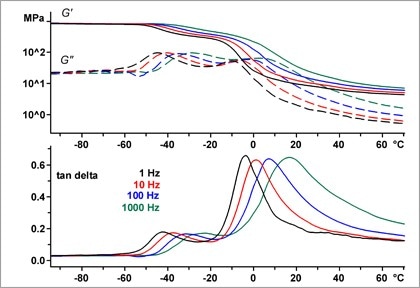
Thermal analysis is an excellent method for the characterization of elastomers because their properties are strongly dependent on temperature.
Elastomer Behavior
Elastomers can be stretched or compressed but return to their original dimensions or shape when the applied stress is released. The term elastomer is derived from the words elastic polymer and is often used interchangeably with the term rubber.
At ambient temperatures, elastomers are relatively soft and deformable. Their main industrial uses are for seals, tires, engine mounts, and flexible molded parts.
Characterization of Elastomers by Thermal Analysis
DSC is used to measure events in which a change in enthalpy occurs. These include the glass transition, reaction enthalpy, vulcanization reactions, melting, crystallization, and thermal stability.
TGA measures weight changes and is widely used for the analysis of elastomers. The main applications have to do with compositional analysis, fillers and additives as well as chemical reactions such as decomposition, oxidation and vulcanization, and last but not least evaporation, desorption and vaporization.
TMA and DMA are used to measure the mechanical behavior and properties of materials. TMA applications include expansion, shrinkage, softening and the glass transition. DMA is the method of choice for characterizing the viscoelastic behavior of materials, the glass transition, and the frequency-dependence of effects.